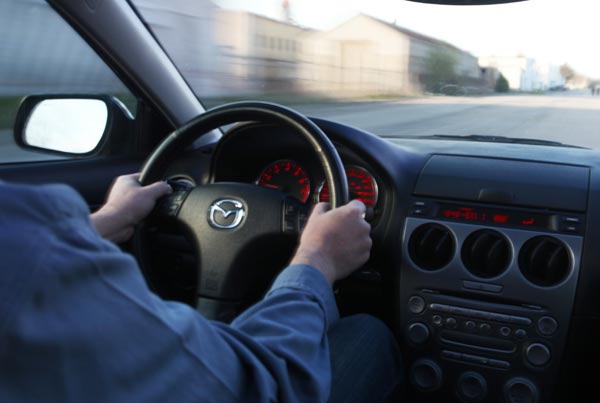
As the brake pads move over a thinner area of the rotor when stopping the brake pedal will move up and down. If a wheel is out of balance it will cause a vibration at high speeds that can be felt in the steering wheel.

Some day when I am driving at 70 I feel no shakes.
Shaky steering wheel at high speeds. The Reasons for Steering Wheel Shakes at High Speeds The most obvious culprit is tire problems especially the ones that are out of balance. The car will shake when you drive at more than 20 to 30 miles per hour. The shaking will grow with the increase of speeds.
A warped or damaged disc brake rotor or out-of-round brake drum can cause a steering wheel to shake. A warped disc means the thickness run-out across the face of the rotor differs. As the brake pads move over a thinner area of the rotor when stopping the brake pedal will move up and down.
Here are five of the most common reasons for a steering wheel shaking while driving at low or high speed. This is the most common cause of steering wheel shakiness and the first cause that you should consider checking out. The best way to determine if the steering wheel shaking is caused by your front tires and wheels being out of balance is to have a professional tire technician complete a balance check.
Typically the warning signs that lead to this issue include. The steering wheel vibrates when the vehicle reaches highway speeds 55 mph and above. Due to inconsistencies during tire manufacture some parts of the tire are heavier than other parts.
While the tires are spinning these imbalances can lead to steering wheel shaking usually when the car is driven at specific speeds. Have your tires and wheels balanced. Bald tires will definitely cause your steering wheel to vibrate and your car to shake.
Furthermore if you continue driving on bald tires they are likely to blow out and having a tire blow out at highway speeds is extremely dangerous especially if its a front tire. The steering wheel sometimes shakes at high speeds around 70 miles per hour. It does not always happen.
Some day when I am driving at 70 I feel no shakes. Some day it shakes badly at the same speed. Also if I drive slower or faster a speed range usually between 68 and 75 it never shakes.
All these problems will send vibrations to the steering wheel at both low and high speeds. In some cases the problem might be a damaged engine mount. If so then you will know as the entire car will be shaking and not only the steering wheel.
Whatever the case it calls for a speedy resolution and you should call your mechanic immediately. Another common issue that can cause the steering wheel shaking is when the brake caliper sticks on. When this happens the shaking of the steering wheel becomes worse when you drive at high speeds.
The faster you drive the poorer the condition of steering wheel gets. If a wheel is out of balance it will cause a vibration at high speeds that can be felt in the steering wheel. When tires are fitted to wheels correction weights are attached to the wheels to make the tires rotate evenly and counteract the combined effect of the tire and wheel unbalance.
Tires often need rebalancing during their lifetime. Sometimes the power steering will cause a shudder in the steering wheel when it is under a load. Turn the steering wheel while the car is stationary looking for the shuddering you have experienced.
If your problem is in the power steering it will occur while you are stopped as well as while you are in motion. Wheel giving you a hand massage. Many motorists have experienced this problem.
The steering wheel starts shaking when brakes are applied at high speed. Often its more noticeable when braking on the highway at 60-70 mph. Unevenly-worn or warped brake discs rotors can cause the steering wheel to shake when brakes are applied.
For a car to run smoothly at speed requires the contact with the road and the transmission of the contact forces to be achieved within very tight tolerances. The majority of vibration problems are caused by the wheels or tires being out of tolerance in some way usually because of an impact. The two most frequent causes of a shaky steering wheel are either warped brake rotors which will cause your steering wheel to shake when you brake or unbalanced tires which will cause your steering wheel to shake when driving at high speeds.
There are other possible causes of a shaking steering wheel though. If the tires are out of balance then the steering wheel can shake. This shaking starts at around 50-55 miles per hour mph.
It gets worse around 60 mph but starts to get better at high speeds. Sometimes brake rotors can be the cause of shaking. Steering wheel vibrations or shakes not only can cause unsettling feelings at high speed but can also be the result of a number of problems.
Whether it be a suspension component failing tires that are worn or improperly inflated or simple alignment issues tracking down the cause of your specific problem is a bit of a process. While other issues are usually only noticed at high speeds you can diagnose a failing wheel bearing as the cause of your steering wheel vibration if you notice the shaking occurring at slower speeds and getting even worse as you accelerate. Depending On Speed It May Be The Balance.